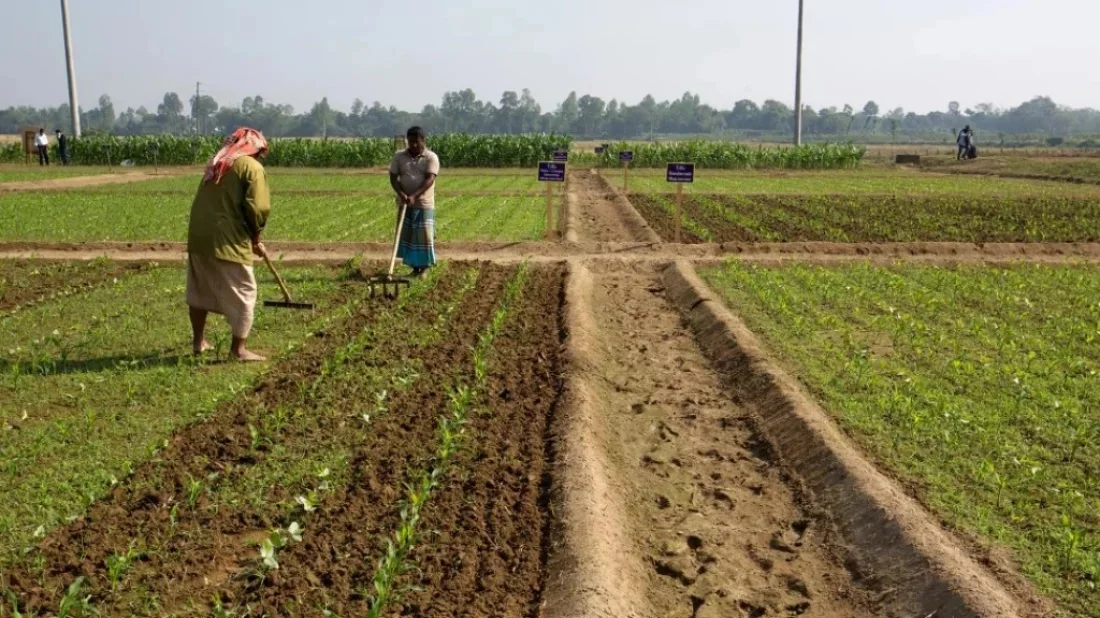Bangladesh draws up $2.5bn crop sector investment plan
Share on:

Priority on irrigation, cold storage, agro processing
Bangladesh is drawing up a 2.5 billion dollars priority investment plan in the crop sector for next six years – earmarking half of the funding for irrigation – amidst high concern over availability of surface water due to drying up of upstream flows in the country's rivers.
Once finalized, the country will seek international support for funding the implementation of the Priority Investment Plan – Crop Sector (PIP-CS) from 2024 to 2030.
Officials involved with the plan finalization told on Wednesday that it’s crucial for Bangladesh to go for higher investment in irrigation, sooner rather than later, given the reality of drying rivers, silted canals, falling groundwater tables and increasing salinity.
As the Ministry of Agriculture (MoA) and the Food and Agriculture Organization of the United Nations (FAO) held a workshop in the city to take stakeholders' views prior to finalizing the plan, experts expressed deep concern about Bangladesh’s otherwise crop-rich zone of northwest experiencing irrigation water scarcity.
Badal Chandra Biswas, director general of the Department of Agricultural Extension (DAE), said during the dry season Bangladesh’s northwest is now experiencing shrinking upstream flows into its rivers and that’s why he emphasized on immediate dredging and riverbanks management, as well as excavation of silted canals.
Otherwise, he feared, northbound inflow of southern saline water wouldn’t halt as farmers have to overexploit groundwater for crop irrigation.
Referring to a ministry study carried out by the Agricultural Policy Support Unit (APSU), Bangladesh Krishi Bank Chairman Md Nasiruzzaman said that, due to water scarcity, the Teesta Barrage Irrigation Project (TBIP) couldn’t attain its goal of providing farmers with irrigation water, compelling the northern farmers around Teesta catchment areas to draw heavily from groundwater.
Also a former agriculture secretary, Nasiruzzaman said non-availability of irrigation water along with increasing temperatures in some districts, like Kushtia, Chuadanga, and Meherpur, is now having bearing on crop productivity.
Bangladesh Rice Research Institute (BRRI) Director General Dr Md Shahjahan Kabir said while planning for new investments, the authorities need to review whether Bangladesh’s current irrigation infrastructures are delivering properly.
He mentioned poor maintenance of irrigation projects in Meghna-Dhonagoda, Ganges-Kobadak and Muhuri.
What are the priority investment areas
After a series of exercises and regional consultations since mid-2022, the MoA and FAO have drawn up a draft PIP-CS, prioritizing four areas where the country needs to invest to see its crop sector manage to absorb climate shocks and other food security challenges.
The priority areas and the funding requirements are: irrigation and water management ($ 1.2 billion), climate smart agriculture ($ 651 million), multipurpose cold storage ($ 396 million) and agro-processing ($ 267 million).
The draft mentions investing in irrigation and drainage canal systems, riverbank protection, rainwater harvesting and canal re-excavation etc.
It includes plans to establish 20 large scale technology villages for technology transfer and service delivery to farmers, establishing 15 specialized research stations, farm mechanization and pursuing climate-smart crop cultivation activities, further development and extension of saline tolerant, drought resistant varieties, crop diversification etc.
The meeting was told that there are 430 cold storages in operation in the country, but they mostly store potatoes. The PIP-CS envisages multipurpose cold storages with facilities to preserve onion, tomato, mango, jackfruit and pineapple.
It seeks to develop processing plants for horticultural products – potato, mango and jackfruit in Rajshahi, Rangpur, Khulna, Chittagong and Dhaka divisions and train and promote agricultural entrepreneurship.
Agriculture Secretary, Wahida Akter, FAO Representative to Bangladesh Jiaoqun Shi, Vice Chancellor of Sher-e-Bangla Agricultural University Prof Dr Md Shahidur Rashid Bhuiyan and FAO PIP Technical Team Leader Bhaskar Goswami spoke at the program chaired by Excutive Chairman of Bangladesh Agricultural Research Centre (BARC) Dr Shaikh Mohammad Bokhtiar.

